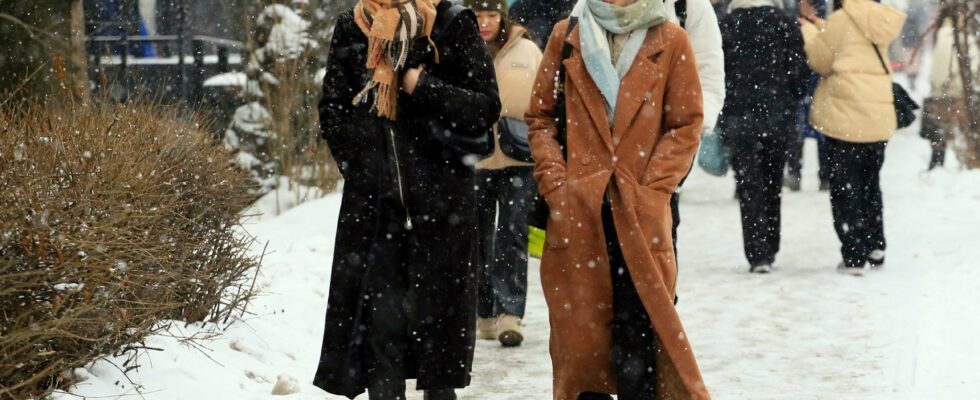Every morning, they meet on the benches of Pushkin Alley in Almaty to read the fortunes of passers-by. Under the trees of this busy street, Aïna, in her sixties, has been practicing divination “for more than 36 years”, she says, sitting in front of the Green Bazaar, the largest market in the economic capital of Kazakhstan. By moving psychic stones on a plastic plate, she answers all the questions she is asked: love, money, health… Price of a consultation: a few thousand tengethe national currency (between 4 and 10 euros). A price that is largely affordable compared to some fortune tellers, who charge around a hundred euros for their services.
Because a wealthy, even very rich, clientele is increasingly turning to fortune tellers. Tarot readers, astrologers, fortune tellers in coffee grounds… “In Kazakhstan, it is no longer only the working classes who are their clients, but also educated and influential women and men,” confirms Dinara Jangjekova, sociologist at the Association of Political Studies in Almaty.
Confidants of the elite
Even statesmen would consult them, according to some testimonies. Manager of a store of esoteric products in a trendy district of Almaty, herself a clairvoyant and tarot reader, Diana Bayalan confirms it. “Executives, judges, lawyers and bosses regularly call on clairvoyants, she testifies in her shop. But they would never admit it publicly.”
Last April, one of them was identified: the former Minister of Economy, Kuandyk Bishimbayev, infamous for having killed his wife. During a historic trial broadcast live on the Internet, the whole world discovered that before calling for help for his wife, the former minister had contacted… his psychic. The psychic, originally from Shymkent, in the south of the country, had been advising the former minister for several years on investment issues, in exchange for a few hundred euros.
TikTok phenomenon
To the point of becoming his éminence grise? Hard to say. One thing is certain, the profession of clairvoyant is experiencing a real boom, especially on social networks. On TikTok and Instagram, fortune tellers who offer their services online or by phone are a major trend, which is reflected in a resounding and stumbling way. In bookstores, guides for fortune tellers are at the head of the gondola and in shops, amulets and talismans are bought at a high price. Some bars in Almaty even offer consultations with clairvoyants while sipping a cocktail!
Zyadan Kazhy Kojalymov, president of the Association of Traditional Healers of Kazakhstan, is not happy about this sudden influx. “They are damaging our profession, which is supposed to be passed down from ancestors!” he fumes in his office, the walls of which are covered in diplomas. Founded in 1991 and recognized by the Kazakh Ministry of Health in 2004, this association brings together a community of 7,000 members, all followers of alternative medicine. For Kojalymov, the important thing is to preserve the continuity of the work of a certain Oteyboydak Tleukabyluly, a 15th-century Kazakh scientist known for his healing gifts.
Back to traditions
Because the return to the ancestral traditions of the Kazakh people is central to the sudden popularity of clairvoyants and, more broadly, of esoteric practices, explains Dinara Jangjekova. “Since the collapse of the USSR, and all the upheavals that followed, people want to have concrete answers about their destiny,” she explains. “There is also a need to return to the roots, those of the pre-Islamic era and the nomadic Turko-Mongol tribes.”
Today a country with a Muslim majority, Kazakhstan was, during Antiquity, crossed by polytheistic beliefs, which gave birth to the current tengrior the veneration of nature, water and the sky. “Today the younger generation increasingly wants this return to the sources, testifies the clairvoyant Diana Bayalan. I see it in the very young age of my clients and, in the streets, in the tattoos of ornaments tengri.” Between Muslims and supporters of Tengrism, debates sometimes break out – especially since Islam strictly forbids shamans and fortune tellers. Without going as far as religious conflict, however: in Almaty, the fortune tellers of Pushkin Alley work a stone’s throw from the city’s central mosque.
.
